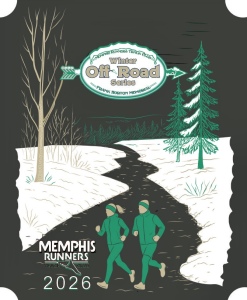Trail Etiquette & Rules
TRAIL ETIQUETTE
Ever wonder if there are rules, or best practices, for trail running or races in general? Below are some of our favorite etiquette practices.
Ear phones / Ear buds / Speakers: Any of these items can be a hazard to you or other runners, especially on some of the more technical parts of the trails where our races are held.
LITTERING (Pack it In / Pack it out): It should go without saying that littering on the trails is a big NO-NO. If you need to take nutrition/hydration with you on a trail run/race, be prepared to pack it out with you. Do not litter the trails!
Stroller / Pets: Although we run with strollers and pets while training, our insurance policy does not allow that during races.
START LINE: This is relevant for any race or running event - at the start line gather with participants that are going the same pace/speed that you anticipate going. The front is for the faster runners (think 5-6 minute miles), while the back of the pack is for walkers. When in doubt simply ask the people around you what pace they plan to run/walk. We utilize corrals to assist in spreading out the field of runners since all of our race courses have some singletrack sections where a large group of runners could clog or cause injury. Pick a corral that is within your capability. If you don't know what your pace is, pick one of the slower corrals. We don't start your time until you pass over the timing mat at the start line.
PASSING: This rule can be applied to running or cycling on trails or rec paths, such as the Greenline, Greenway, etc. A faster runner/cyclist should be able to pass a slower person on the same path. To accomplish a successful pass follow these simple instructions:
1. Faster runner/cyclist must provide ample opportunity for the slower traffic to move and provide an audible warning. Whether that is simply shouting out “On your left!” or ringing a bike bell, etc...
2. The slower runner/cyclist must be able to have enough time to move as far to the right as is safely possible. Do not expect this person to jump off the trail for you, but they should provide space for you to pass.
3. Once the slower person is to the right of the passageway, the faster runner/cyclist should pass on the left-hand side of the slower person, doing so in a safe and controlled manner.
4. Faster person should complete the pass by going back into the correct position on the path. If it’s a path with two-way traffic (such as the Greenline) move to the right of the path.
On the trails, when not racing in an event, it is often seen as exceptional manners to step completely off the trail and stop to allow faster runners/cyclists to pass safely. Remember to allow enough time to allow the slower traffic to move to the side and provide an audible announcement. And as always, say “Thank you”.
BOTTLENECKS: Yes, it happens sometimes in races. What should you do? Wait your turn.
SINGLETRACK: Singletrack trail running/races should be run in a single line, not two abreast. There is usually room for just one person, hence the term "singletrack". If you have to pass, see Passing rule above, else just keep in a single line. If you've positioned yourself correctly at the Start Line (see Start Line etiquette best practice) you will be running with others who are going at your pace. You can still talk to your running buddy - they'll hear you.
GIVING/RECEIVING HELP: The question arose, "During a trail race, should I expect people to provide help to me, or should I provide help to someone?" The answer to this question depends on the answer to "Are they in danger?" If they are, then by all means YES provide help. If their situation is beyond your capacity, you can always find help by looking for the nearest volunteer. If it's an emergency, find the nearest volunteer immediately. If they're simply stuck in the mud, or need help getting up from a fall, use your own discretion. For most of us trail races are pure recreation and we're just out to have fun, not set the world on fire, or break any records.

